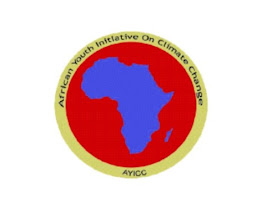CLIMATE CHANGE AND AFRICA’S HEALTH
For
health anywhere to be sustained, people need clean air, safe water, adequate
food, tolerable temperature, stable climate, and high levels of biodiversity.
Climate change is envisaged to alter all these requirements of a healthy
population especially in Africa where poverty and frequent famines have
exacerbated the continent’s ability to adapt and prevent effects on climate
change. The economic and environmental wellness coupled with the health of the
African population have deeply rooted inter-linkages that adverse effects on
any of the components will surely affect the whole system consequently impeding
the minimal progress.
Although
some African countries have seen most of the worst effects of climate change
effects on health, the bad news is that it is projected to get worse. Horn of
Africa has suffered malnutrition expressly from the recurrent food shortages. Malnutrition
is the most touted health effect resulting from climate change yet not much has
been done to arrest the situation. The most important point of discussion by
all the parties to the United Nations Framework Convention on Climate Change
(UNFCCC) should be that of adaptation. Farmers
cannot cope with the increasingly unpredictable weather given the
over-dependence on rain-fed agriculture.
The
multi-thronged health and climate change nexus presents researchers everyday
with new challenges as latest studies suggest there will be increased
occurrence of tropical diseases on the continent fueled by the changing
climate. Malaria is set to spread in the previously cooler regions as a result
of global warming and other resultants of extreme weather such as heavy
flooding and drought. It is however, as in many cases of natural events, the
children who get affected the most. It is estimated that 85% of children in
Africa suffer from malaria, yellow fever, diarrhea, malnutrition, as well as
getting caught up in natural disasters; compounding their vulnerability.
The
scientific evidences in Africa connecting climate change and population health
may be flimsy but all the projections and monitoring of trends all point
towards a tough future should no decisive actions be taken. That is why
research should be fundamental in the attempts to understand the potential
impacts of climate change on health in the continent. Beyond climate change, other environmental
variations have been known to cause health-related complications, for instance
change in diet and lifestyles have led to diseases such as cancer, diabetes and
cardio-vascular disease. Previously it was believed that these diseases
affected only the well-to do households but not anymore. The burgeoning of
middle class over the last 3 decades adds to this problem.
The
fact that climate change is as a result of human processes, besides natural
events, cannot be overstated. UNFCCC brought a platform for governments to seek
and implement ways to minimize human activities that directly affect the
environment. This step taken by United Nations has been seen as a potent path
to a solution. The parties to the UNFCCC approved Kyoto protocol to help reduce
the greenhouse gas emissions, another bold step despite some vital countries
refusing to sign.
The
ultimate objective of UNFCCC is “Stabilization
of greenhouse gas concentrations in the atmosphere at a level that would
prevent dangerous anthropogenic interference with the climate system. Such a
level should be achieved within a time-frame sufficient to allow ecosystems to
adapt naturally to climate change, to ensure that food production is not
threatened and to enable economic development to proceed in a sustainable
manner.” Therefore parties to the convention must periodically communicate
information related to its implementation to the Conference of Parties (COP),
to monitor the status of the climate in member countries and effective
interventions.
The
all vital issue right now for governments is health adaptation to climate
change. The
Framework for Public Health Adaptation to Climate Change is intended to provide
a scientific and evidence-based coordinated response to the climate change
adaptation needs of African countries in order to support the commitments and
priorities of African governments. Despite the positive actions being taken by
UNFCCC, there is an urgent need for a renewed commitment to reinforce the gains
made. COP18 in Doha is a perfect opportunity.
By Daniel Wasonga ~
African Union Youth Volunteer
Addis Ababa, Ethiopia.

Comments
Post a Comment